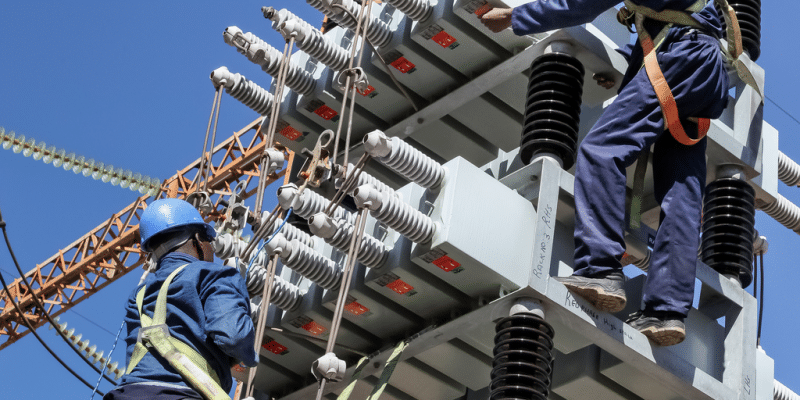The industrial group Eranove has been awarded the delegated management of Société béninoise d'énergie électrique (SBEE). After Ivory Coast, the group, based in Paris, France, will provide the public electricity service in Benin for the next two years.
Good news for Eranove in Benin. The industrial group based in Paris, France, is strengthening its presence in the country and will now be responsible for the delegated management of Société béninoise d’énergie électrique (SBEE). Until now, this service has been provided by the Canadian company Manitoba Hydro International (MHI), whose contract has come to an end.
Over the next 26 months, Eranove will be responsible for distributing and marketing electricity in this country of 13 million inhabitants. This new contract is “built on the mobilisation of African skills and expertise with a proven track record in solving problems and providing solutions specific to the continent. One of the keys to success lies in the involvement of the men and women within SBEE, by encouraging initiative and creative genius, through empowerment and the development of skills and expertise within this fine company”, explains Marc Albérola, Eranove’s Managing Director.
Dependence on fossil fuels
As part of its new mission, the industrial group plans to form “a consistent and coherent resident team of seven international experts” in order to “set up a specific support system to provide solutions in the technical, commercial, financial, procurement, logistics, human resources, information system, health, safety and ethics areas”, says Eranove.
Read also- BENIN: Japan’s Toyota Tsusho wins the contract for the 2nd Illoulofin solar farm
The Group has signed this public-private partnership (PPP) at a time when, according to the World Bank, Benin will have 41% access to electricity by 2021. The challenge is therefore to ensure that electrification continues. This issue goes hand in hand with that of the availability of electricity on the grid. Benin currently has an installed capacity of 349 MW, the equivalent of the 310 MW Lake Turkana wind farm in Kenya alone. Of this installed capacity, 249 MW comes from thermal power stations.
But Benin, which wants to be a major player in the West African Power Pool (WAPP), has started to exploit its renewable energy potential, particularly solar power. In 2022, the West African country will have its first 25 MWp solar power plant at Illoulofin in the commune of Pobè. Its capacity will be increased to 50 MWp under a PPP between Japanese company Toyota Tsusho and Société béninoise de production d’électricité (SBPE). These projects should further stabilise the SBEE network, which is managed by Eranove.
Jean Marie Takouleu






